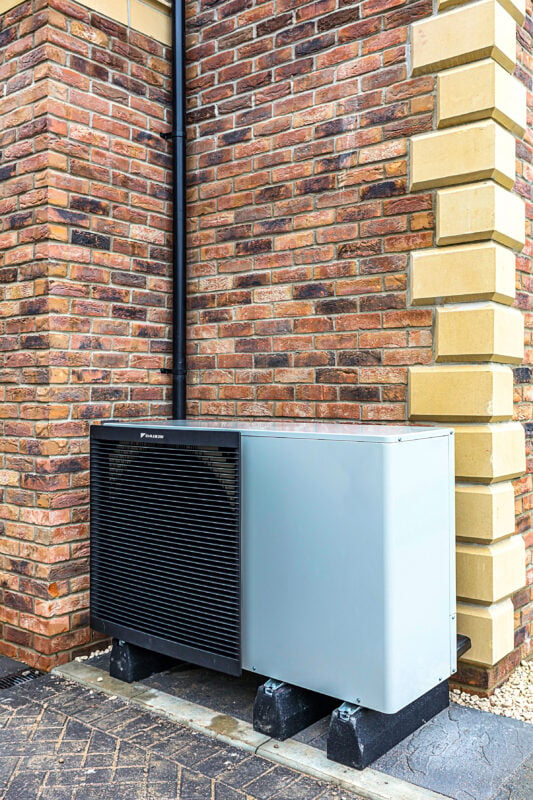The UK government announced yesterday (29 February) that Boiler Upgrade Scheme (BUS) applications rose by 39% compared to January 2023.
According to the government’s BUS statistics, there were over 2,000 applications for heat pump grants in January 2024, only surpassed by 2023’s October and November figures.
Introduced in 2022, the BUS aims to help households switch from fossil fuel heating systems to cleaner, low-carbon heating alternatives by covering the majority of the average upfront cost of an air source heat pump.
This uptick in applications is generally attributed to the 50% grant increase introduced by the government last autumn, where the UK’s prime minister Rishi Sunak announced that the grant for an air source heat pump would jump from £5,000 to £7,500.
Up to the end of January, the scheme hailed as the “most generous of its kind in Europe” by the government, has now received 33,424 applications in total and has issued more than £133 million in vouchers to customers.
The South West has seen the most installations with 3,894, followed by the South East with 3,886 and then the East with 2,671.
Energy security secretary Claire Coutinho said: “I don’t want families to have to choose between cutting costs and cutting emissions. I want families to feel supported, not forced, to make changes that are right for them.
“After we made our heat pump scheme one of the most generous in Europe, applications have soared by 40% year on year – showing that our approach is the right one.”
Low-carbon heating support schemes
Heat pumps and other forms of low-carbon heating systems have been steadily growing in popularity across the UK, especially in Wales.
The Microgeneration Certification Scheme (MCS) confirmed that Welsh homes and businesses installed a record number of heat pumps across 2023, bringing the total number of Welsh properties with renewable energy to over 100,000.
Almost one in ten households in Wales have MCS-certified renewable installations as of 2023, the highest proportion of any other country in the UK.
As well as providing grants for small-scale domestic heat pump installations, the UK government also launched an £80.6 million funding package in January 2024, aiming to provide investment to four low-carbon heating projects.
One notable project received £8 million of government funding to improve 34 inefficient heat networks across the country by creating a more reliable heating supply and upgraded system for more than 9,000 residents.
More than half the funding (£42.5 million) will be awarded to Exeter Energy Network for building a new network of air-source heat pumps and one of the UK’s largest high-temperature water-source heat pumps.
It is estimated that buildings connected to the network will see an initial reduction of 65-75% in carbon emissions compared to gas heating.
February 2024 saw the allocation of £1.2 million across 12 low-carbon technology start-ups from the Net Zero Technology Centre (NZTC).
As part of the firm’s TechX Clean Energy Accelerator, up to £100,000 is granted to each of the start-ups, including two prominent low-carbon heating technologies.
Kali Technology, one of the successful projects, aims to curate a carbon-zero industrial process heating using low-cost, integrated heat pump technology to power large-scale production sites.
Also, start-up MECHAPRES has created a high-temperature heat pump featuring embedded thermal storage for industrial heat decarbonisation, with heat and steam as a service potential.





